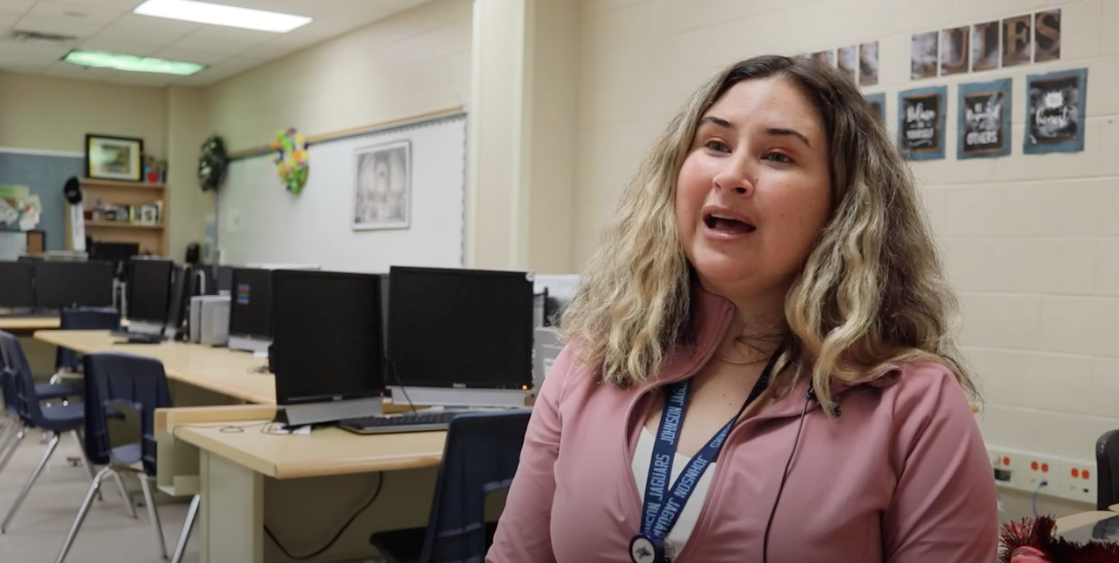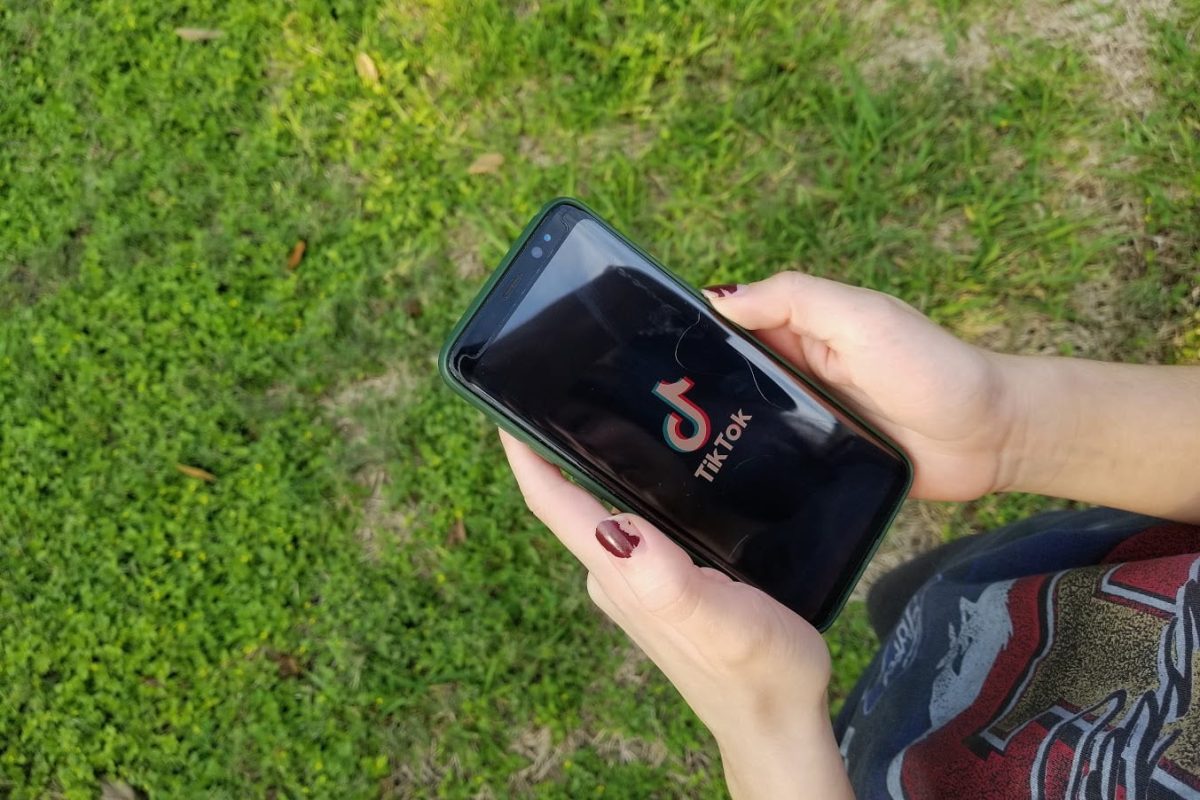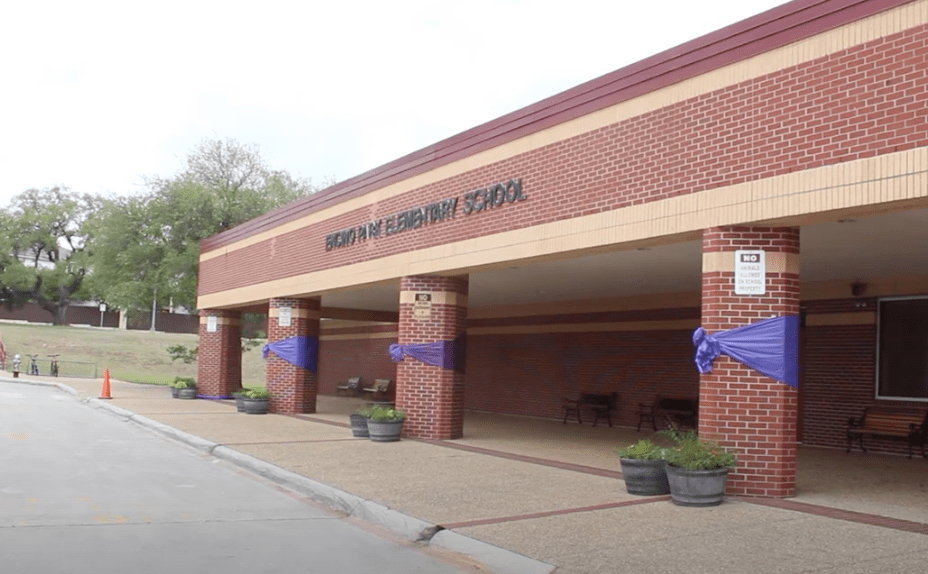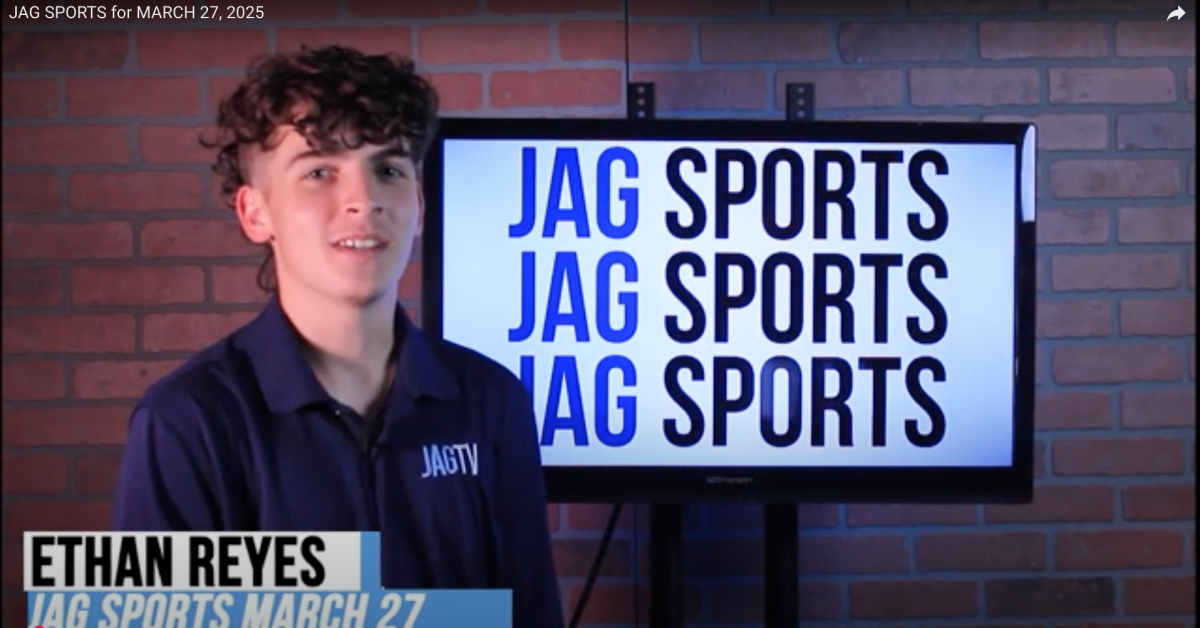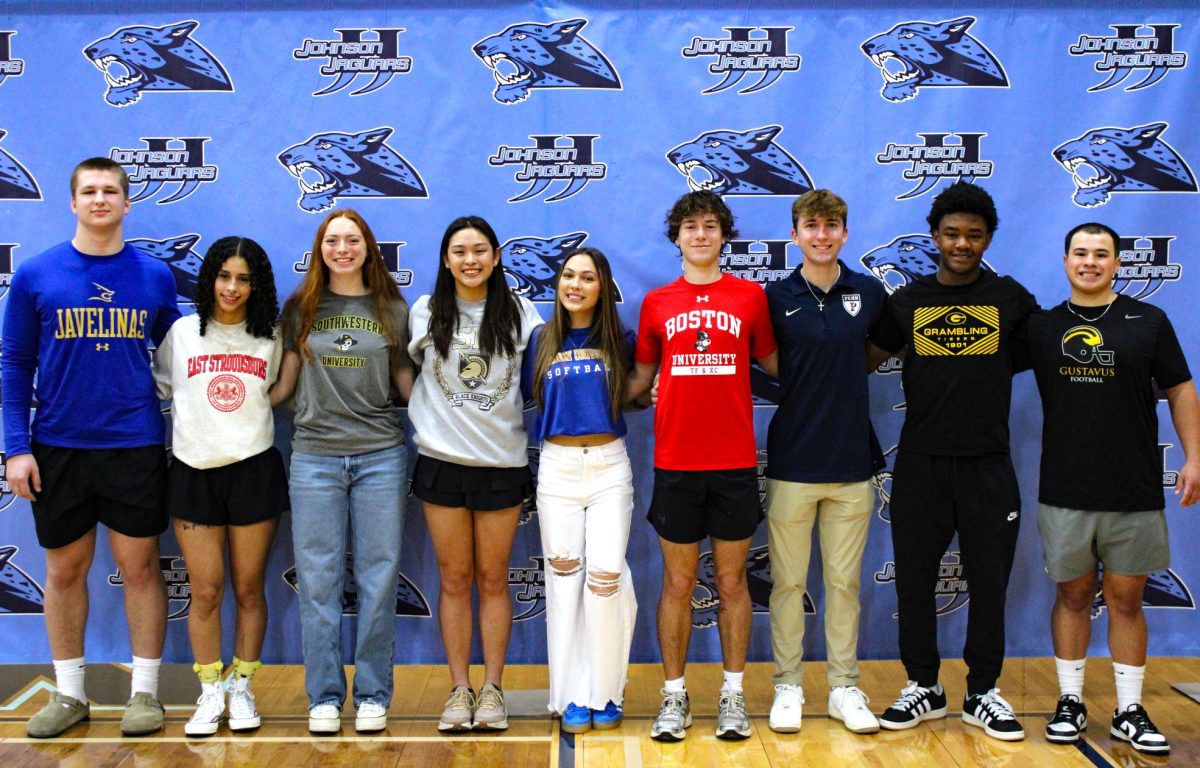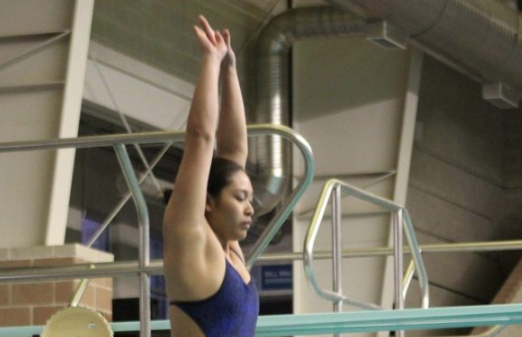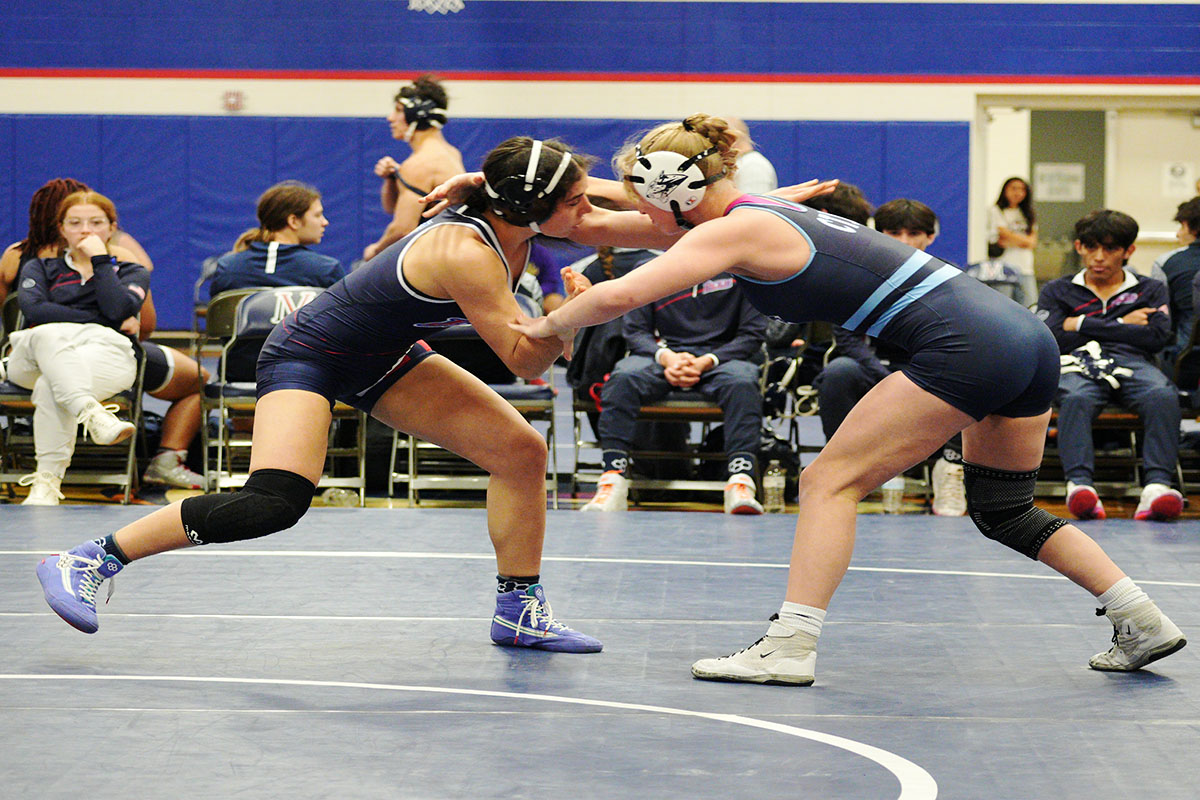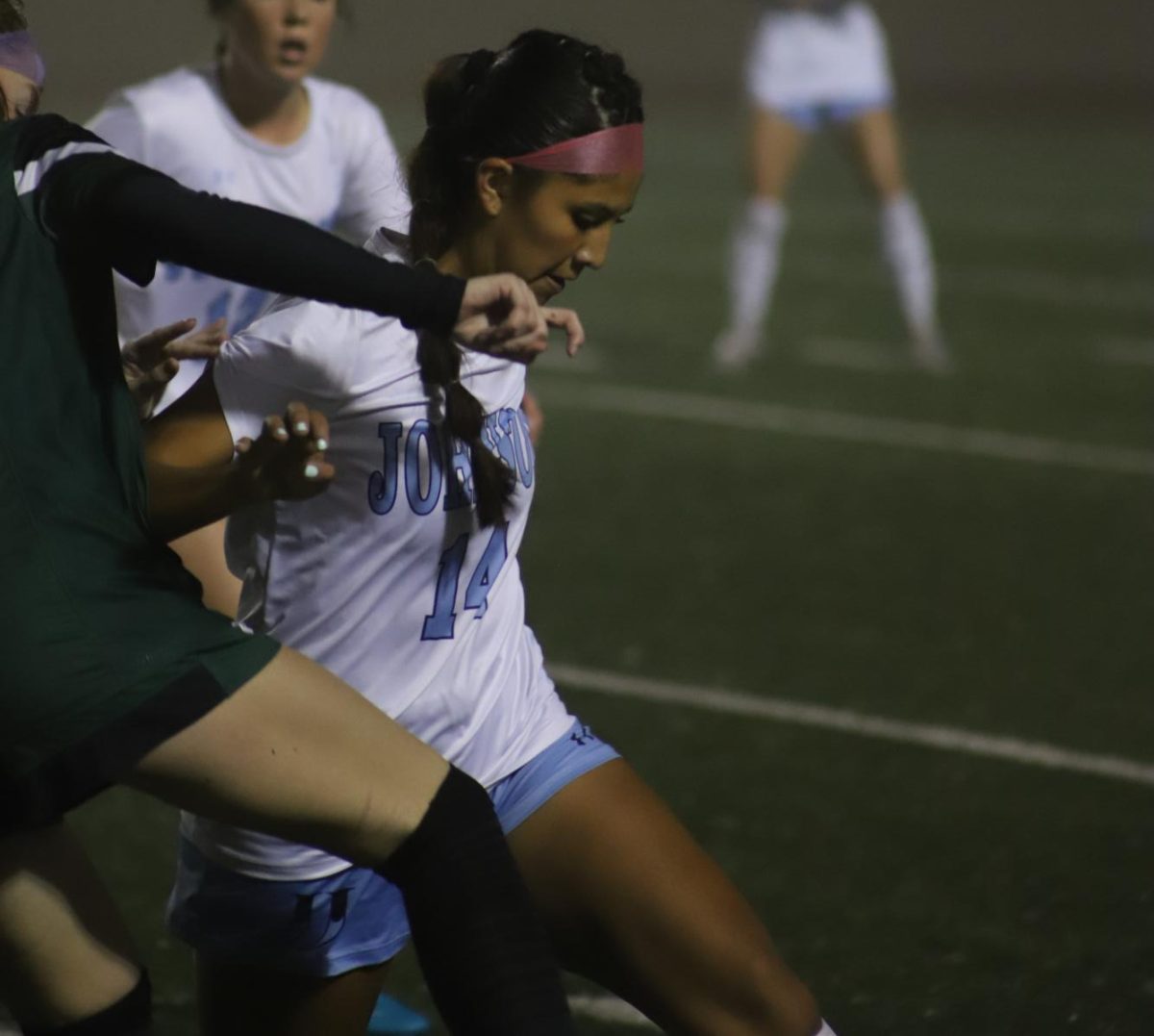by Ivey McDaniel | staff writer
With temperatures averaging above 100 degrees for the past few months, going outside seems unthinkable. However, sports practices must go on, and athletes are definitely feeling the heat.
“[We practice] everyday during school and three days after school. During school, [practices] are a little over an hour, and after school, about one and a half hours,” junior football player, Christopher Brierly said.
With frequent practices, and over 90 football players to take care of, overheating is becoming a obstacle for coaches. According to the Centers for Disease Control, about 318 Americans die each year from heat related illnesses and this year alone, two football players, in other southern states, and a coach in Texas, have died due to overexposure. However, athletes agree, our coaches are employing preventative measures.
“It’s definitely a concern, but they make sure we stay hydrated,” freshman Aaron Marks said.
Texas heat isn’t a stranger to girl’s soccer coach, Kara Strancener, and with a district champion team, the weather will be the last thing to stop them.
“We practice all day, every day, nothing’s changed from last year. We just tell them to drink water all day,” Stracener said.
The athletes have also taken note of the constant water breaks and importance of hydration.
“[The coaches] constantly remind us to drink plenty of fluids. I drink whenever we take a break, but I usually drink about 100 ounces of fluids a day outside football practice,” Brierly said.
The cross country team also practices about two hours everyday outside.
“[Practices are at] 6:30 a.m., [the coaches] bring out water quarts and lots of water bottles and sometimes we get breaks. After school practices in the 100 degree weather are a lot tougher,” Krupa said.
Athletes aren’t the only ones effected, students in band practice everyday after school until 7:20 p.m. to prepare for the friday night games.
“It’s not that bad after you get used to it, it gets cooler in the evenings,” said sophomore Emma Frady.
The band directors have also been ensuring students don’t over heat.
“We get water breaks every 10 to 15 minutes, we just run to the side, and if you want to sit out, we just ask and they have shady, tented areas to sit in,” Frady said.
Despite the blistering weather, coaches, trainers, and have made few changes from last year.
“[We have] more breaks and longer breaks. I don’t think I would change anything since there hasn’t been any problems with dehydration,” Brierly said
Many parents, after hearing stories about heat related deaths, are worrying about their teenagers.
“With the excessive heat this year this became a huge concern for me. So, in case I don’t nag him enough about other things, hydration became a huge issue. It is important to hydrate continuously, not just before and after practices,” football parent Jennifer Brierly said.
Coaches agree, preventing heat related illnesses start with the athletes off the field.
“My biggest concern is for them to take care of their bodies. I don’t have control on what they put in them at home,” Stracener said.
Preventative measures and at home hydration worked their way into the Brierly’s pre-football season routine.
“We started about two weeks before summer practices began. He drank 16 ounces coconut water smoothies, because coconut is an excellent source of hydration, first thing in the morning,” Brierly said.
Besides hydrating, there are other measures that can be taken at home or before practices to narrow the chances of suffering from heat exposure.
“He has a checklist. He wears an Under Armor shirt to keep him cooler, and he also makes sure he has a Gatorade and protein bars. So, besides the liquid hydration he has to have protein in his body also. I do think we’re doing a good job of pre-hydrating at home and the coaches and trainers keep him hydrated on the field. Sun burn was a concern during two a days, but he used sunblock and protective clothing so there wan’t a problem,” Brierly said.
The concern is continually there, but Brierly believes taking cautionary measure can narrow the chances of suffering a heat related illness.
“I can’t control what happens to him on the field, but I can prevent heat related injuries,” Brierly said.




